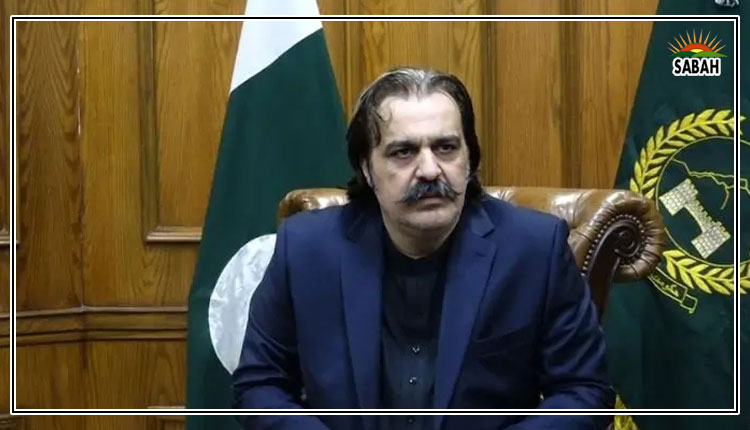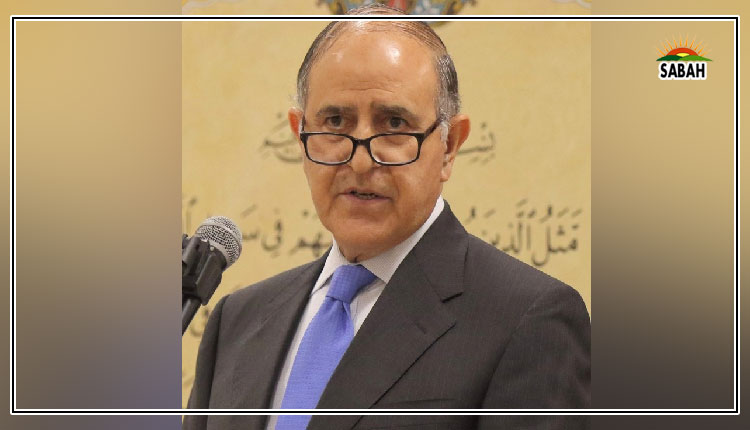Turkey has brought Kashmir to the fore of its foreign affairs: Dr. Ghulam N. Mir
ISTANBUL, Dec 23, (SABAH): A seminar, organized by “Post-Colonial Studies Application and Research Canter” (PAMER) of Uskudar University, Istanbul was organized on the subject of, “Why Kashmiris must get their right to self-determination? Üsküdar University was declared in 2018 by UNESCO as a “Center of Excellence” for its work in Neurobiology, Cognitive Medicine and Brain Research.
Speakers included: Dr. Ghulam N. Mir, Chairman, Kashmir Diaspora Coalition & President, World Kashmir Awareness Forum & Dr. Ghulam Nabi Fai, Chairman, World Forum for Peace & Justice.
The Emcee of the seminar was Dr. Fehmi AGCA, Department of Political Science and International Relations at Uskudar University. Dr. Fehmi is one of the most accomplished scholars at the University who has written more than dozen books, including “International Cooperation on Law against Terrorism.” Dr. Fehmi said that Kashmir issue is one of the oldest issues pending on the agenda of the United Nations Security Council. The people of Kashmir are suffering, and it is our responsibility to explain the plight of the people before the world community. We know that the United Nations resolutions were implemented in other conflict areas, why not in Kashmir? Kashmir deserves international attention too.

Dr. Ghulam N. Mir said that Government of India has committed war crimes in Kashmir, besides denying the people the right to self-determination which was pledged to them by the United Nations Security Council as early as 1948.
The United Nations has adopted multiple resolutions, calling for a plebiscite in Kashmir but none has been implemented due to Indian intransigence. Kashmir has become, Dr. Mir added, a settler colonial project of India, with forced demographic change and the granting of citizenship to millions of Indian Hindus. The environment and ecology of Kashmir have been severely damaged by the influx of tourists and settlers, and ingenious Kashmiris have been denied access to jobs and education opportunities.
Dr. Mir explained that according to Srinagar-based, Association of Prarents of Disappeared Persons (APDP), more than 8,000 men disappeared in the region between the late 1980’s and the early 2000’s. Since the men were not declared dead, their wives spent decades waiting for them in uncertainty – Kashmiri civil society coined the term, ‘Half-Widows’ for them.
Dr. Mir thanked the Erdogan Administration which has brought Kashmir to the fore in its foreign affairs; and Turkey is one of the few countries which has constantly raised the voice of Kashmir at the United Nations.

Dr. Ghulam Nabi Fai said that the self-determination of peoples is a basic principle of the United Nation Charter which has been reaffirmed in the Universal Declaration of Human Rights, the International Covenants of Civil and Political Rights (the ICCPR) & International Covenants on Economic, Social and Cultural Rights (the ICESCR) and applied countless times to the settlement of many international disputes. Finally, in 1945 the establishment of the United Nations gave a new dimension to the principle of self-determination. It was made one of the objectives which the United Nations would seek to achieve, along with equal rights of all nations. Article 1.2 of the Charter of the United Nations as one of the purposes of the UN reads: “To develop friendly relations among nations based on respect for the principle of equal rights and self-determination of peoples.”
“International Court of Justice considered the several resolutions on decolonization process and noted: “The subsequent development of International Law in regard to non-self-governing territories as enshrined in the Charter of the United Nations made the principle of self-determination applicable to all of them.” This opinion establishes the self-determination as the basic principle for the process of de-colonization,” Dr. Fai added.
Dr. Fai explained that the principle of self-determination and the maintenance of international peace and security are inseparable. For example, the denial of this right to self-determination to the people of Kashmir has brought two neighboring countries in South Asia – India and Pakistan – to the brink of nuclear catastrophe. The applicability of the principle of the self-determination to the specific case of Jammu and Kashmir has been explicitly recognized by the United Nations. It was upheld equally by India and Pakistan when the Kashmir dispute was brought before the Security Council in 1948. Since, on the establishment of India and Pakistan as sovereign states, Jammu and Kashmir was not part of the territory of either, the two countries entered into an agreement to allow its people to exercise their right of self-determination under impartial auspices and in conditions free from coercion from either side.
“India’s occupation of Kashmir has thus been left undisturbed by the international community, even though its validity has never been accepted. At no stage, however, have the people of Kashmir shown themselves to be reconciled to it. The question arises: what should be the point of departure for determining a just and lasting basis? The answer obviously is (a) the Charter of the United Nations which, in its very first article, speaks of “respect for the principles of equal rights and self-determination of peoples” and (b) the international agreements between India and Pakistan,” Dr. Fai highlighted.

Dr. Fai warned that we must mention here that even by today’s violent world, the behavior of the Indian occupation regime in Kashmir is singular in as much as it has enjoyed total immunity. Not a word of condemnation has been uttered at the important capitols of the world, not even a call on India to cease and desist from its near- genocidal campaign. Therefore, we appeal to the United Nations Secretary General to intervene in the situation in Kashmir under the Article 99 of the United Nations Charter. Because human rights violations in Kashmir are systematic, deliberate and officially sanctioned. India has given its occupation forces powers to shoot to kill and the license to abuse the people of Kashmir; in whatever ways they like in order to suppress the popular movement for basic human rights and human dignity.












